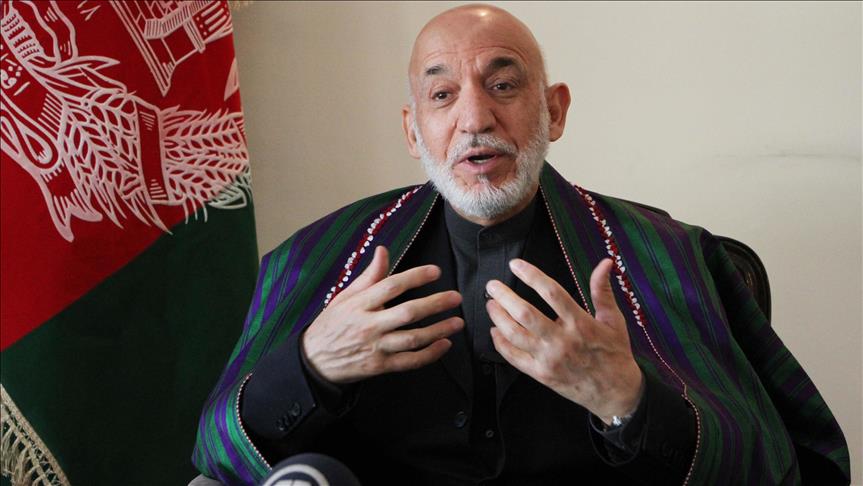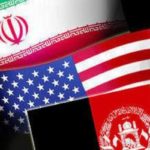India should treat all Afghans equally, former Afghanistan President Hamid Karzai said, taking exception to the stipulation in the Citizenship Amendment Act (CAA), 2019, that only Hindus, Sikhs, Jains, Buddhists, Christians and Parsis from that country would be eligible for fast-tracked naturalization in India.
“We don’t have persecuted minorities in Afghanistan… the whole country is persecuted. We have been in war and conflict for a long time. All religions in Afghanistan — Muslims and Hindus and Sikhs — which are our three main religions, have suffered,” Mr. Karzai said. He was speaking exclusively to The Hindu during a visit to Delhi where he addressed the inaugural session of the government’s Raisina Dialogue.
Mr. Karzai said he hoped the sentiment that minorities must be protected “would be reflected in India with regard to other Afghans, who are Muslim, as well.”
Mr. Karzai’s comments, differing from New Delhi’s view are significant, given that he has been seen as a strong friend of India. Like many Afghan leaders, Mr. Karzai has also lived in India for several years beginning in 1976, and has studied in Shimla.
In December, the MEA had clarified that the CAA referred to past attacks against minorities in Afghanistan and that the current government had “substantially addressed the concerns of the minority communities as per their constitutional provisions.”
Full text of the interview:
What sort of impact do you expect on Afghanistan from heightened US-Iran tensions?
Any development positive or negative in Iran has a deep impact on Afghanistan. Without a doubt, heightened tensions with the US will have an impact on Afghanistan. We very much wish that Iran be wise and cognizant of the fact that the US presence in Afghanistan should not be seen as a threat to them, and we ask the Americans not to do anything that would precipitate any situation with Iran.
At the Raisina Dialogue, you said Iran and also Pakistan are the two countries that have the highest impact on Afghanistan today…
These are our two most significant neighbors. Both have together welcomed millions of Afghan refugees, about two to three million each. The peace process [with the Taliban] that has started, is definitely linked to their assistance and goodwill towards us, and vice-versa. So Pakistan has a lot of impact on us.
India is not part of the talks with the Taliban, nor has it agreed to increase its military footprint there. What do you see as India’s strategic role in Afghanistan?
During my government (2001-2014), we had made a decision that India would be our most important friend and ally for strategic and historical reasons. India did what it could. Although it was not traditionally a donor country, it showed exceptional generosity in giving us almost $3 billion in assistance, and we are grateful for that. At the same time, we have seen that India is not keen to support the US-launched peace process or our own Afghan peace process, including our meetings twice in Moscow, for intra-Afghan talks.
What is your reaction to the Citizenship Amendment Act (CAA), which says that Afghanistan, along with Bangladesh and Pakistan, is a country from where India will accept persecuted minorities?
[The CAA] was India’s decision, and they may have had reasons for it and the law brought to Parliament. We don’t have persecuted minorities in Afghanistan… the whole country is persecuted. We have been in war and conflict for a long time. All religions in Afghanistan: Muslims and Hindus and Sikhs, which are our three main religions, have suffered.
The feeling in Afghanistan is very different to what the perception here in India may be. When I became President, the Principal of a school, in his 90s, whom I had known for many years, came to see me. As he left, he said, ‘I have only one request: our Hindus and Sikhs have suffered a lot more [during the Taliban regime], and they deserve much more, so bring them back from wherever they have fled in Pakistan or India, and restore their properties.’
That is the sentiment in Afghanistan. And I hope that sentiment would be reflected in India as well with regard to other Afghans, who are Muslim, as well.
Back in Afghanistan, the final results of the elections are still awaited. How do you see the political future of Afghanistan?
We needed to focus exclusively on peace [first], and through that bring enfranchisement to the Afghan people on a much larger scale, and then go for elections. That didn’t happen, and now we are in trouble, because the Afghan people did not turn up to vote. This was a referendum against the prevailing situation in Afghanistan, against all that is wrong: the foreign aggression, the war and the suffering of the Afghan people. We hope that people now accept the results, whatever they are, and the emerging government will be wise enough to try and work for legitimacy and bringing the nation together for peace. India should really look at Afghanistan; people who have such love for India, and help us work towards peace in Afghanistan.













